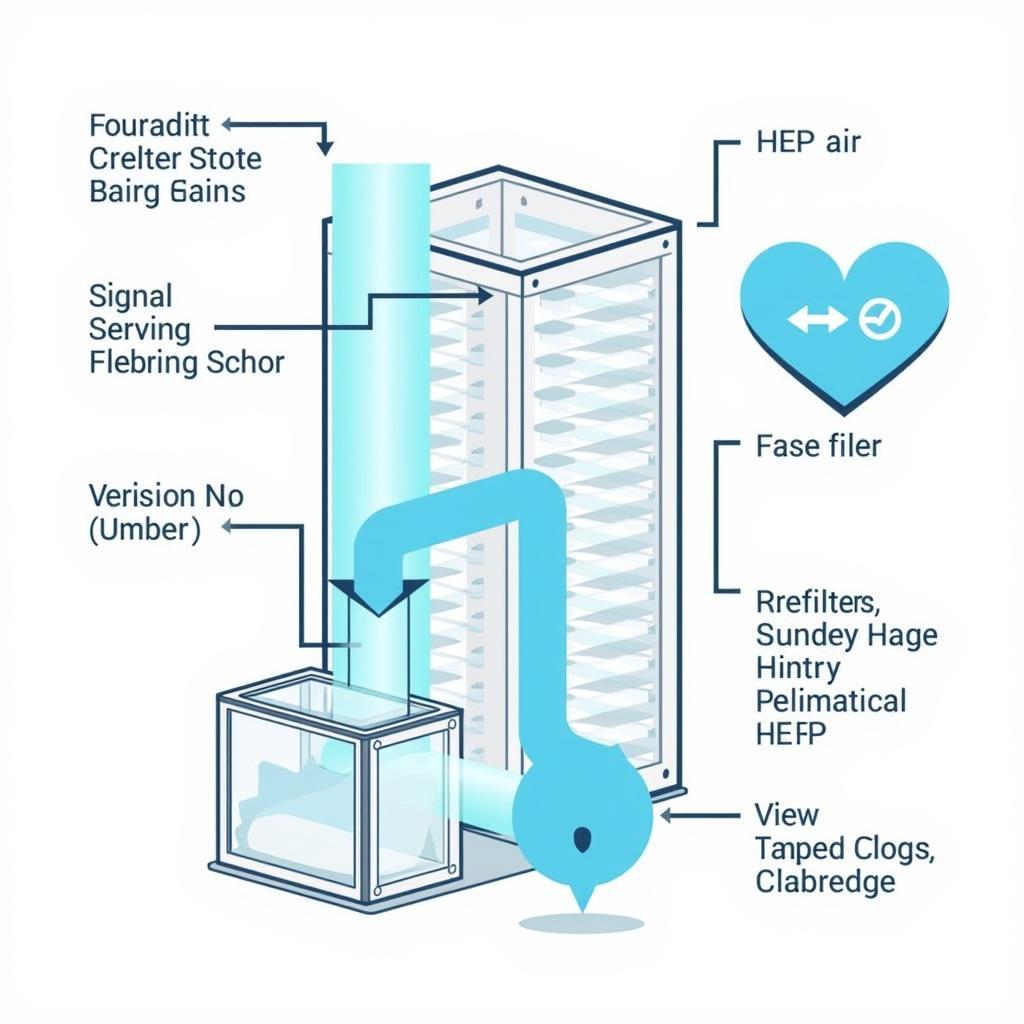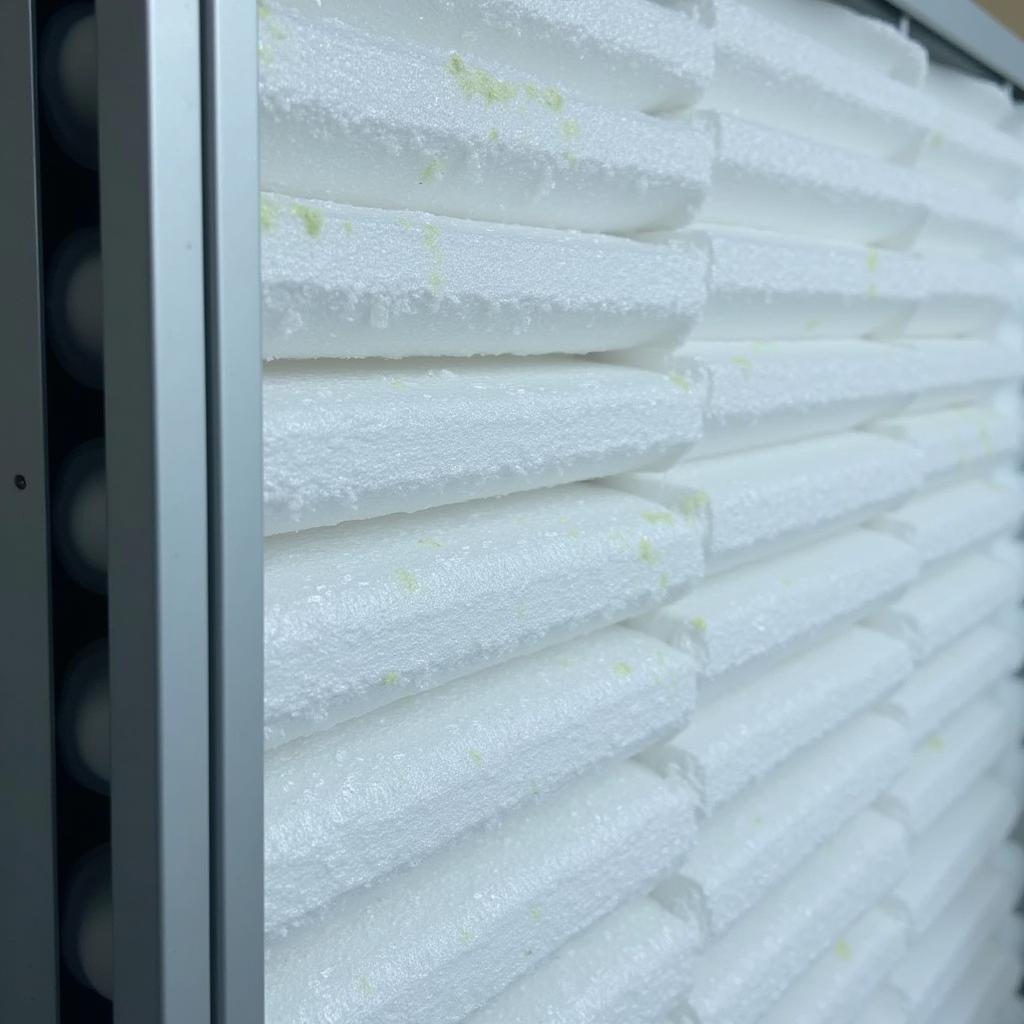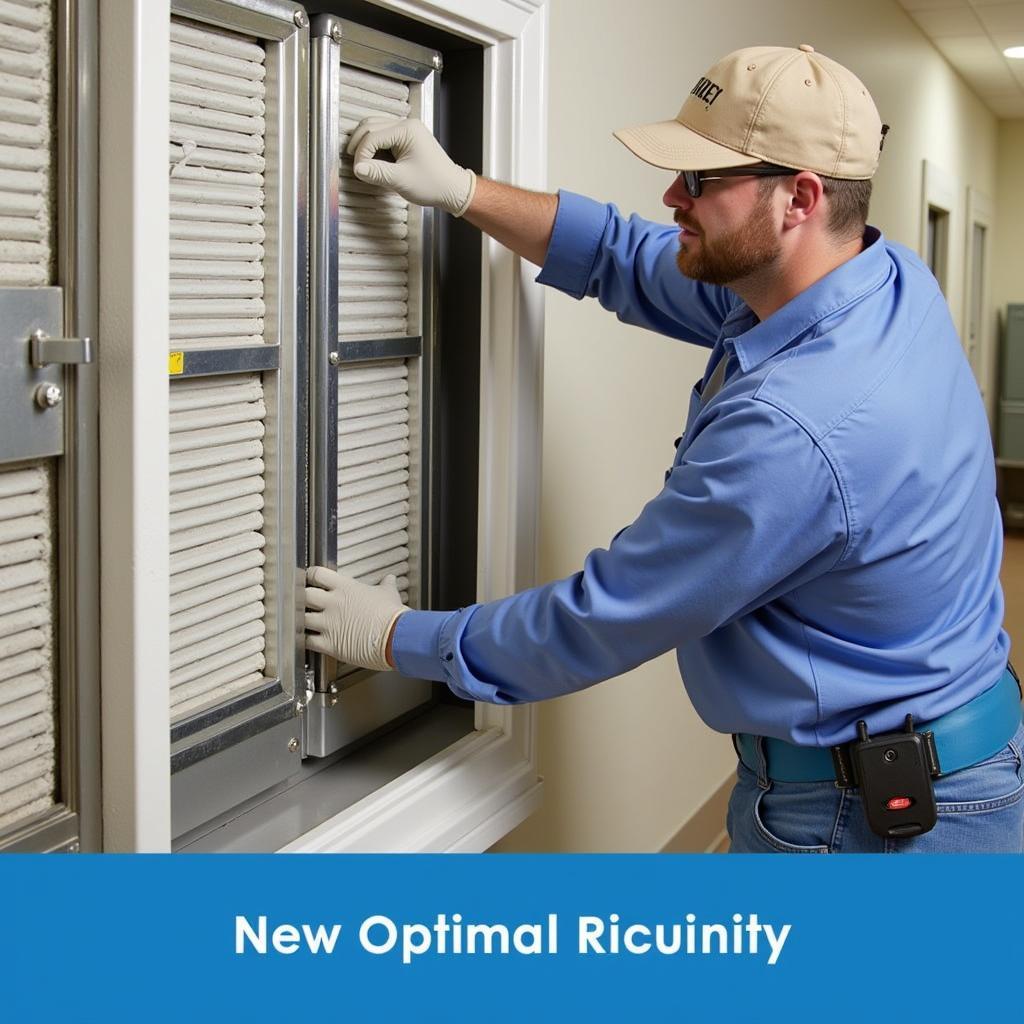Hospital Air Filtration is a critical component in maintaining a sterile and healthy environment for patients, staff, and visitors. Effective air filtration systems minimize the spread of airborne infections, reduce allergens, and improve overall indoor air quality, contributing significantly to patient recovery and staff well-being.
At San Jose Hospital, we prioritize the health and safety of everyone within our facility. We understand that clean air is essential for a comfortable and healing environment. That’s why we’ve invested in state-of-the-art hospital air filtration technology. Learn more about how we maintain a clean hospital.
The Importance of Advanced Hospital Air Filtration Systems
Airborne contaminants, including bacteria, viruses, fungi, and dust mites, pose a significant threat in hospital settings. Patients, particularly those with compromised immune systems, are highly vulnerable to infections spread through the air. Advanced air filtration systems act as a crucial line of defense, effectively removing these harmful particles and creating a safer breathing environment. Beyond infection control, efficient filtration also plays a vital role in minimizing allergens, reducing respiratory irritation, and promoting faster recovery.
What factors should you consider when evaluating a hospital’s air filtration capabilities? Key considerations include the type of filters used, the frequency of filter changes, and the overall system design. HEPA filters, known for their high efficiency in trapping microscopic particles, are a cornerstone of effective hospital air filtration. Regular maintenance and adherence to industry standards are equally crucial in ensuring optimal performance.
 Hospital Air Filtration System Diagram
Hospital Air Filtration System Diagram
Different Types of Hospital Air Filtration
Various types of air filtration systems cater to the specific needs of different hospital areas. Operating rooms, for example, demand the highest level of air purity to minimize the risk of surgical site infections. Specialized HEPA filters and laminar airflow systems are employed to create ultra-clean environments. Other areas, such as patient rooms and common areas, benefit from high-efficiency particulate air filters and regular air exchanges. Understanding the different filtration technologies and their applications is crucial for maintaining optimal air quality throughout the facility. Do you know what air purifiers do hospitals use? Exploring the various options can provide valuable insights.
How HEPA Filters Work in Hospitals
HEPA filters, or high-efficiency particulate air filters, are essential in hospital air filtration systems. These filters are designed to capture at least 99.97% of airborne particles that are 0.3 micrometers in diameter. This level of filtration effectively removes bacteria, viruses, pollen, and other microscopic contaminants, ensuring cleaner and safer air for patients and staff. Regularly replacing hospital HEPA filter is crucial to maintain their effectiveness and prevent clogging.
 HEPA filter close-up in a hospital setting
HEPA filter close-up in a hospital setting
Maintaining a Clean and Healthy Environment at San Jose Hospital
At San Jose Hospital, we are committed to providing the highest standards of care, and that includes ensuring optimal air quality. Our comprehensive air filtration strategy incorporates advanced HEPA filtration systems throughout the facility. We adhere to strict maintenance protocols, including regular filter replacements and system inspections, to ensure peak performance. We also prioritize staff education on infection control practices, reinforcing the importance of hand hygiene and respiratory etiquette. Explore our options for hospital masks for sale. These practices, combined with our advanced air filtration technology, contribute to a safe and healthy environment for everyone.
What measures are in place to ensure the efficacy of our air filtration system? Continuous monitoring, regular testing, and adherence to stringent industry guidelines are integral to our approach. We believe that transparency and open communication are vital, and we are happy to answer any questions you may have regarding our air quality management practices.
 San Jose Hospital Air Filtration Maintenance
San Jose Hospital Air Filtration Maintenance
Investing in the Future of Healthcare
Hospital air filtration is not just about meeting regulatory requirements; it’s an investment in the health and well-being of our community. By prioritizing air quality, we create a healing environment that supports patient recovery, protects vulnerable individuals, and fosters a healthier workplace for our dedicated staff. As technology advances, we continue to explore innovative solutions to further enhance our air filtration strategies and maintain our commitment to providing the best possible care. Oddly enough, understanding the principles of a betta hospital tank can highlight the importance of clean environments, even in different contexts.
In conclusion, hospital air filtration is a critical aspect of healthcare, significantly impacting patient safety and overall well-being. At San Jose Hospital, we recognize the importance of clean air and are committed to maintaining the highest standards of air quality through our advanced filtration systems and rigorous maintenance protocols.
FAQ
- What type of air filters does San Jose Hospital use?
- How often are the air filters changed?
- What other measures are taken to ensure good air quality?
- How does the hospital monitor air quality?
- What is the hospital’s policy on infection control?
- How can I learn more about the hospital’s air filtration system?
- Who can I contact if I have concerns about air quality?
If you need further assistance, please contact us at Phone Number: 02437655121, Email: [email protected] Or visit us at: No. 298 Cau Dien Street, Minh Khai, Bac Tu Liem, Hanoi, Vietnam. We have a 24/7 customer service team.